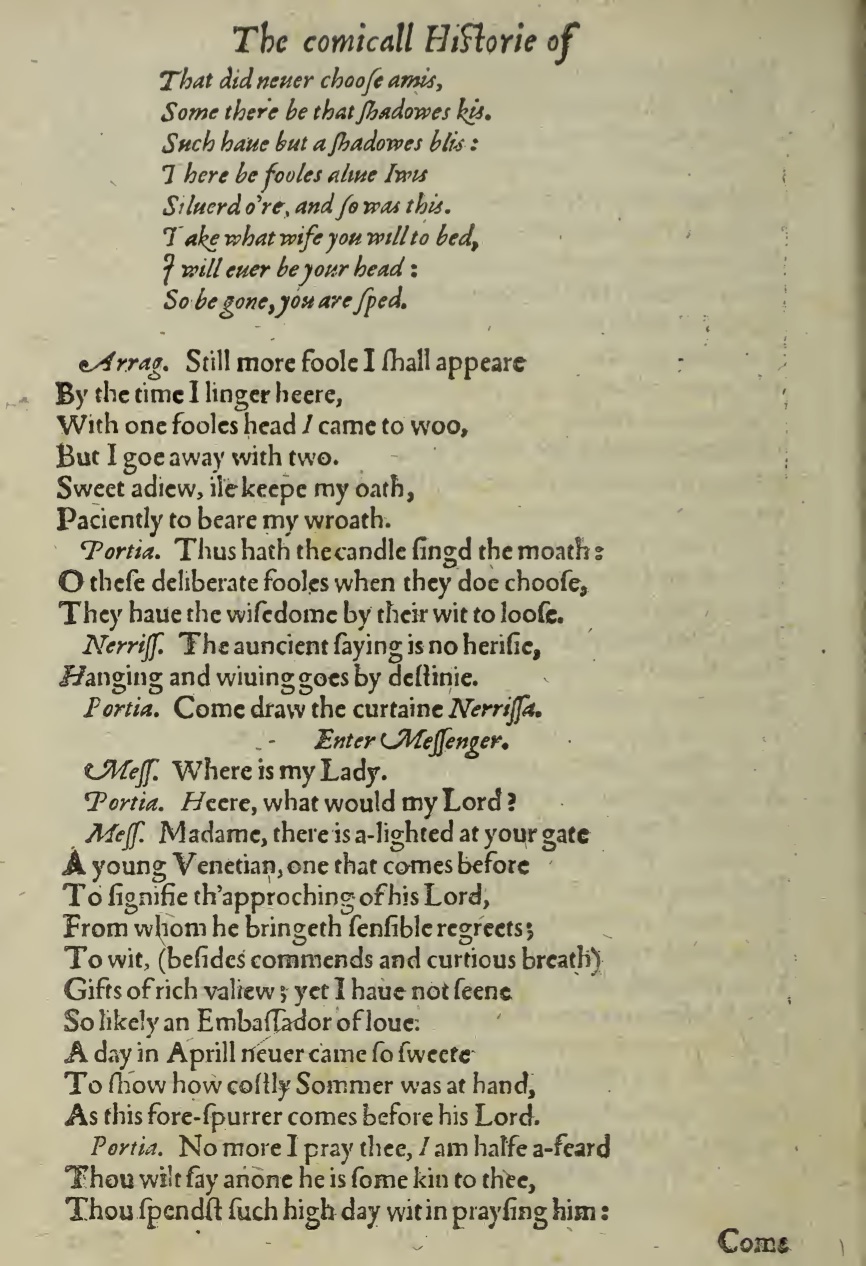Editorial note
We opted to do a full, rewritten version of our page of Merchant of Venice in an attempt to make the scene a little easier to understand for younger audiences. We started by transcribing the original image in its entirety, before transforming it slightly to make it easier to understand while still in older English. After altering it, the two of us believed re-writing the work in modern English would be beneficial to get a better idea of the scene, to make it easier for others to comprehend exactly what was being said, while also preserving the original intentions of the text. This re-written version makes it easier to understand for younger readers of Shakespeare, as well as those who don’t understand Iambic Pentameter as well due to it being changed from the format into a more standard version of writing that is easier to consume.
There are a lot of words/word choices in this section that don’t make sense in modern English or just don’t exist commonly. For example, “heirfire” being another word for “destiny,” “fore-spurrer” being included, and how “spent” was spelled “spend’st.” Furthermore, aspects like the long s and the u/v lettering are also not common in modern-day spelling. The long s in particular tends to look like an f, which can confuse younger readers. For example, words like “faying” (saying) or “choofe” (choose) can cause misinterpretations of the text if younger readers don’t know how to interpret it.
Transcription:
“It will never choose incorrectly.
Some may kiss the shadows,
But are then hidden within the bliss of them.
In truth there are fools alive
With silver hair, like the covering of the casket,
Marry which wife you want,
However the fool with always be in your head
So leave this place, you must go.”
Arrag.: I appear more foolish than I did,
The longer I stay here
I first came with one fool's head,
And leave with two.
Goodbye, I’ll keep my oath,
Patiently with my broken heart.
Portia: Now the candle has burned the moth.
Oh these overthinking fools – when they choose,
They believe they have wisdom, and that belief causes them to lose.
Nerris.: The ancient saying is true,
Death and marriage are decided by destiny
Portia: Come close the curtain, Nerrisa
Enter Messenger
Messenger: Where is my lady?
Portia: I’m here, what is it my lord?
Mess.: Madame, there is a young venetian waiting at your gate.
He comes before you, to warn of the approaching of his lord
From whom he brings his calling card
And he also brings, along with his pleasant introduction,
His expensive gifts which I did not see.
It is another suitor, though this one will be successful.
To hear of his approach is sweeter than an April day,
Showing how lovely summer is coming.
As this fore-spurrer that arrived ahead of his lord.
Portia: No more suitors, I beg of you. I am afraid
You will say he’s related to you,
As you spent so much time singing his praises.
Image credit: Rare Books & Manuscripts Department, Boston Public Library, copy G.176.16. The most excellent historie of the merchant of Venice. First Quarto. London: 1600.
Citing this page: Shakespeare, William. The Merchant of Venice, E1v. London: 1600. Cacodemon Digital Shakespeare. Edited by [Amelia Majewski & Emma Sullivan]. Source edition: Rare Books & Manuscripts Department, Boston Public Library (copy G.176.16). http://cacodemonshakespeare.com/comedies/merchant/e1v.
